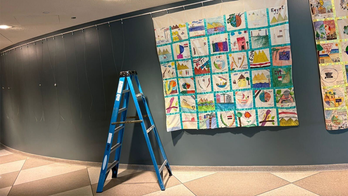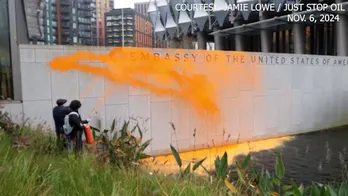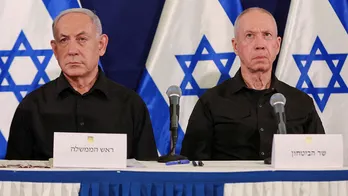After another earthquake in Turkey, what scientists know about aftershocks
Monday another earthquake struck southeastern Turkey, near the Syrian border. This time, the quake registered as a magnitude 6.3 — an order lower than the initial, devastating 7.8 magnitude earthquake and the magnitude 7.5 aftershock that struck the area two weeks ago on Feb. 6. As of Tuesday, at least six people were killed and more than 200 injured in the latest quake.
A magnitude 6.3 is still considered strong, according to the United States Geological Survey (USGS). And as NPR previously reported, some locals were inside buildings trying to recover belongings lost in the initial quake when Monday's aftershock hit.
It made us wonder: What are aftershocks? And how long will people in Turkey and neighboring countries like Syria have to endure aftershocks while piecing their lives back together? Days? Years?
Earthquake geologist Wendy Bohon says that to be considered an aftershock, an earthquake must both follow a "mainshock," the largest earthquake to occur in the area, and occur before the area has returned to the usual background seismicity level. She notes that aftershocks are common and expected, occurring up to years after an earthquake. In that way, "they're the only earthquakes that we can actually kind of predict," Bohon says.
In fact, the USGS notes that after a M7.8 earthquake like Feb. 6, it is "extremely common for hundreds of aftershocks to occur over the next few weeks, months, or possibly years."
Unfortunately, no technology exists that will precisely and accurately predict when another aftershock may happen.
"I would love to be able to say to the people in Syria and Turkey like, 'You're done. It's good. It's over — time to rebuild,'" says Bohon. "But we know that the earth works in particular ways, and we know that more aftershocks are likely and they're going to continue to feel shaking. And ... it's such a traumatizing, devastating situation."
Listen to Short Wave on Spotify, Apple Podcasts and Google Podcasts.
Curious about other stories in the news? Email us at shortwave@npr.org.
Today's episode was produced by Liz Metzger, edited by supervising producer Rebecca Ramirez, and fact-checked by Anil Oza. The audio engineer for this episode was Robert Rodriguez.
Disclaimer: The copyright of this article belongs to the original author. Reposting this article is solely for the purpose of information dissemination and does not constitute any investment advice. If there is any infringement, please contact us immediately. We will make corrections or deletions as necessary. Thank you.







